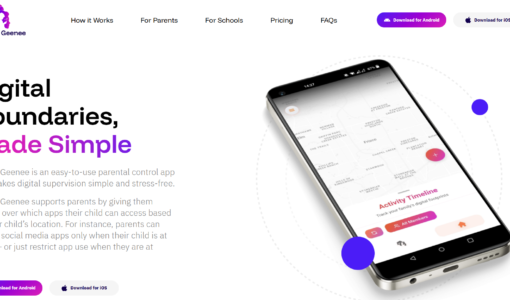Social media has become integral to our daily lives, shaping how we communicate, consume information, and perceive the world. While it offers many benefits— connecting people across distances, providing entertainment, and even fostering social movements—it has significant downsides, particularly concerning mental health. This blog explores the darker side of social media, focusing on its effects on anxiety, self-esteem, addiction, relationships, and overall well-being, while also offering potential solutions to mitigate these issues.
The Psychological Effects
Numerous studies have established a link between excessive social media use and increased anxiety and depression. The constant barrage of information and the pressure to maintain an online persona can create immense psychological stress. Social media platforms, which were once intended for light entertainment, are now sources of various mental health issues. The biggest drawback is comparison; users constantly compare their lives to the ‘ideal’ social lives displayed online. When peers achieve milestones, travel, or appear effortlessly successful, it can lead to feelings of inadequacy and self-doubt. A particularly relevant trend is the Fear of Missing Out (FOMO), which is amplified by the real-time nature of social media and fosters a sense of exclusion. This sense of missing out can further exacerbate anxiety. Studies indicate that mental health issues, particularly among young people, have surged since the rise of social media, highlighting its significant role in the decline of psychological well-being.

Low Self-esteem and Body Image Issues
In earlier decades, low self-esteem was often tied to skin colour, weight, and education. Social media plays a major role in distorting self-perception and fuelling body dissatisfaction. It is rare for individuals to share candid, unfiltered images of themselves anymore. Instead, unrealistic beauty standards are propagated through filters, Photoshop, and AI-generated images, promoting unattainable ideals and leaving users dissatisfied with their natural appearance. Additionally, the influence of well-curated images by influencers and celebrities sets unrealistic expectations, making ordinary users feel insecure about their bodies, lifestyles, and achievements. These factors significantly impact mental health, with constant exposure to perceived perfection contributing to self-esteem issues, eating disorders, and body dysmorphia, particularly among young users.
Addictive Dependency
Social media platforms are engineered to be addictive, manipulating brain chemistry to keep users engaged for extended periods. This has created a new phenomenon of instant gratification, manifesting as likes, comments, and shares that trigger dopamine release, creating a cycle similar to gambling or substance addiction. As a result, there has been a rise in addiction among children. Moreover, excessive social media use is linked to decreased attention spans, increased stress levels, and a reliance on online validation for self-worth.
The Continuation of Harassment
In previous decades, bullying often occurred in physical spaces like schools and colleges; today, social media bullying has taken it to another level. Victims can be pursued into their homes, making it inescapable through cyberbullying. This dangerous trend can manifest in various forms, including trolling, doxxing, hate speech, and public shaming. Victims of cyberbullying often experience severe emotional distress, including anxiety, depression, and, in extreme cases, suicidal tendencies. The anonymity afforded by social media platforms emboldens perpetrators, making these platforms breeding grounds for toxic behaviour.
The Blue Light Syndrome
As children, we were taught that excess of anything is harmful, and social media is no exception. Today, children as young as six months are exposed to mobile devices, leading to excessive screen time, especially before bed, which interferes with sleep patterns and overall productivity. The artificial light emitted by screens suppresses melatonin, a hormone crucial for sleep regulation. For teens and young children, the temptation to check notifications, respond to messages, or endlessly scroll through content can delay bedtime, leading to chronic sleep deprivation. The consequences of poor sleep quality include impaired cognitive function, memory issues, and reduced concentration, ultimately affecting academic and professional performance. By recognizing these challenges and understanding their implications, we can take steps toward mitigating the adverse effects of social media on mental health.
Social Isolation
In our previous blog, we discussed the concept of the “lone generation,” referring to the way children are being affected by the advancement of technology and social media platforms. Nowadays, being social is often equated with being connected online. However, despite the promise of connectivity that social media offers, it frequently results in increased loneliness and weakened interpersonal relationships. Online interactions tend to lack the depth and emotional nuances found in face-to-face conversations, which negatively impacts real-life connections. Our heavy reliance on digital communication can hinder the ability to engage in meaningful, real-world interactions.
Some Possible Solutions
While there is no fool-proof method to eliminate social media, users can take proactive steps to protect their mental health. Parents must establish digital boundaries for their children. This can include setting screen time limits to prevent excessive usage using parental control apps. Designating tech-free zones, such as bedrooms or during family meal times, is also beneficial. Additionally, using apps that track and limit social media consumption can help maintain a healthier balance.
The main objective is to promote positivity and self-acceptance, rather than encouraging comparison and negativity. Parents should encourage their kids to unfollow or mute individuals who trigger feelings of anxiety or insecurity. Parents need to be intentional about their children’s online engagement—encouraging them to avoid doom-scrolling and unnecessary interactions.
Despite all our efforts, it remains essential to return to our roots by promoting more playtime outside the home. Kids should take periodic breaks from social media to reset their mental well-being. Encourage them to engage in offline hobbies, such as reading, exercising, or spending time in nature, while also prioritizing face-to-face interactions over virtual ones.
Conclusion
Social media is a double-edged sword. While it offers numerous benefits, its negative effects on mental health cannot be ignored. Issues such as anxiety, addiction, body image concerns, and sleep disturbances are increasingly becoming a growing concern. However, by setting boundaries, practicing mindful consumption, and advocating for ethical digital spaces, we can reclaim control and foster a healthier relationship with technology. Ultimately, social media should be a tool for connection, not a source of distress.
Are you ready to take back control of your digital well-being? The choice is yours.




